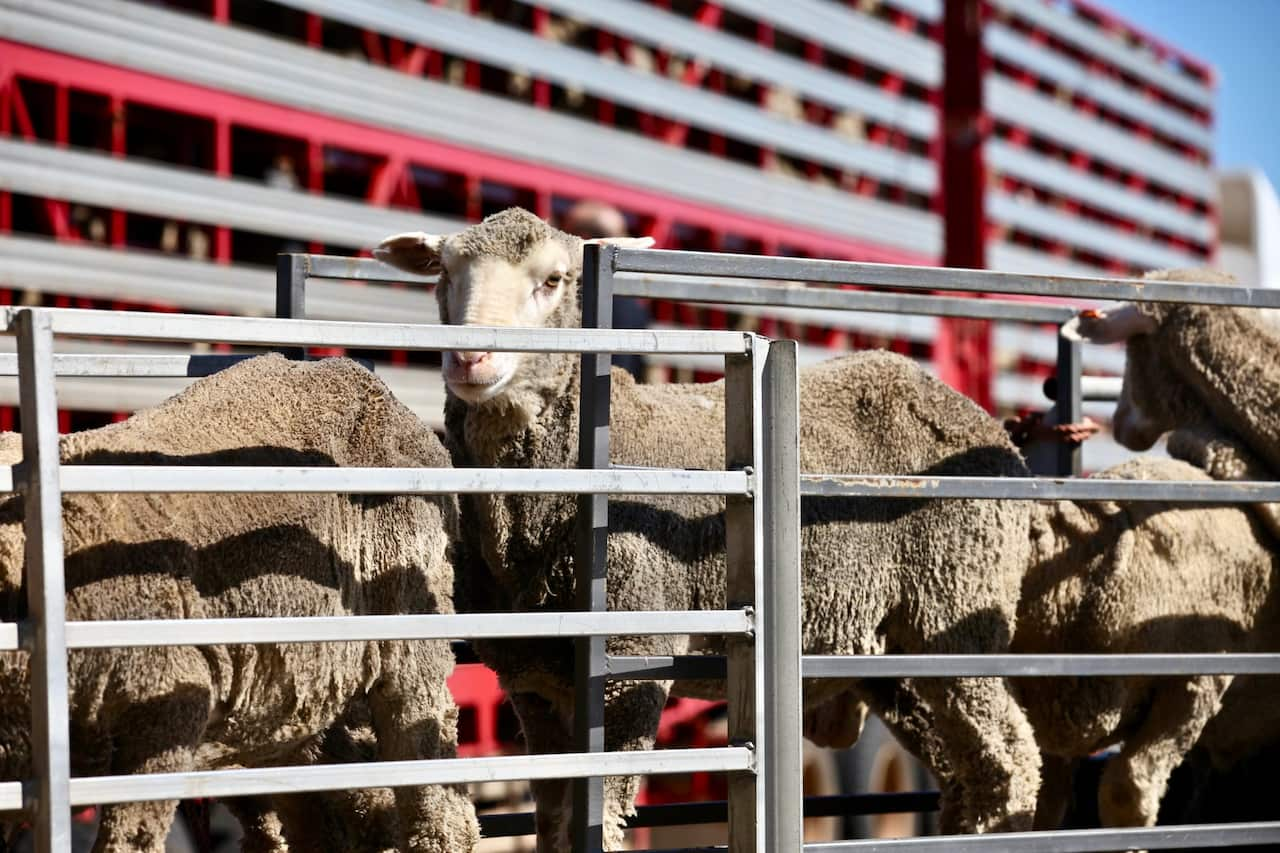Dr Khalil and Professor Robert Capon from the University of Queensland’s Institute for Molecular Bioscience are attempting to create the next generation of antiparasitic treatments for Australian sheep.
They believe that faeces from sheep may hold the key to a breakthrough.
Their aim is to use the bacteria and fungi present in the faeces of parasite-infected sheep to discover new natural antiparasitics.
The pair was awarded $700,000 from the Australian Research Council Linkage Grant to partner with Boehringer Ingelheim Animal Health Australia, a world-leader in the research and development of antiparasitics. Dr Khalil says the development of treatments is vital for Australia’s economy.
Dr Khalil says the development of treatments is vital for Australia’s economy.

Source: The University of Queensland
“The livestock in Australia is facing a very big problem because we don’t have an effective treatment for the parasites that affect the production process," she told SBS Arabic24.
Framers currently use chemicals to combat parasites that infect livestock, but many of them have become multi-drug resistant.
This issue for the industry has been compounded by the slow discovery rate of new antiparasitics.
“We study the microbiome in general, which means that we study all the microbes in the animals’ guts, and this is a very rich area, it is full of microbes, whether it is bacteria of fungi,” Dr Khalil says.
“We collect sheep poo and study it, to separate the natural microbes and make a genome sequence, to see which microbes can release new chemicals.
“Unfortunately, we found that most genes are completely idle. We managed to activate them through outside effects, which resulted in it being active again and started to produce new anti-parasites.” Dr Khalil says her interest in developing treatments for animals was formed during her childhood.
Dr Khalil says her interest in developing treatments for animals was formed during her childhood.

In 2017–18, the lamb industry accounted for around 7 per cent ($4.1 billion) of the gross value of agricultural production in Australia. Source: SBS
“From an early age, I was fond of scientific research, that is why I decided to study pharmacy, especially microbiology and immunology.”
Born and raised in Egypt, she completed a degree in pharmacy and was appointed as a lecturer at Helwan University.
She completed her master’s in microbiology and Immunology in 2008 before migrating to Australia.
“I came to Australia with my husband, who was on a scholarship to undertake his PhD, and I was very keen to start my PhD as well.
“I choose Queensland university because it is one of the top 50 universities worldwide, and the third in Australia.”
In order to pursue her dreams, she campaigned to be placed in Professor Capon’s lab at the Institute for Molecular Bioscience.
“Getting this PhD scholarship was a turning point in my life, especially that I am a wife and a mother at the same time, and I needed to balance the time I give to my family and to my study, which I managed to do.
“I have always wanted to help people and improve their wellbeing, that is why I have a lot of passion to do something that helps society.”
Dr Khalil began her PhD in 2009 and completed it in 2013, and she received an award for the best research paper in antibiotics.
“Some people are trying to create this stereotype about any woman who wears a veil, that she is not very well educated, or she stays at home, and this completely wrong,” she says.
“I think the productivity and competency of a person are what makes them succeed, not what they wear.
“It is what I do, and how productive I am, and what I do for the society that matters and the religious aspect is something personal.”
She’s thankful that she hasn’t received preferential treatment because of her veil.
“Professor Robert Capon and the Institute for Molecular Bioscience have absolutely supported me in my work, and I didn’t feel I am treated differently.
“I am happy I live in a community like Queensland where I feel different opinions are accepted and there are equal opportunities regardless of the look or colour or clothes or religion.”




